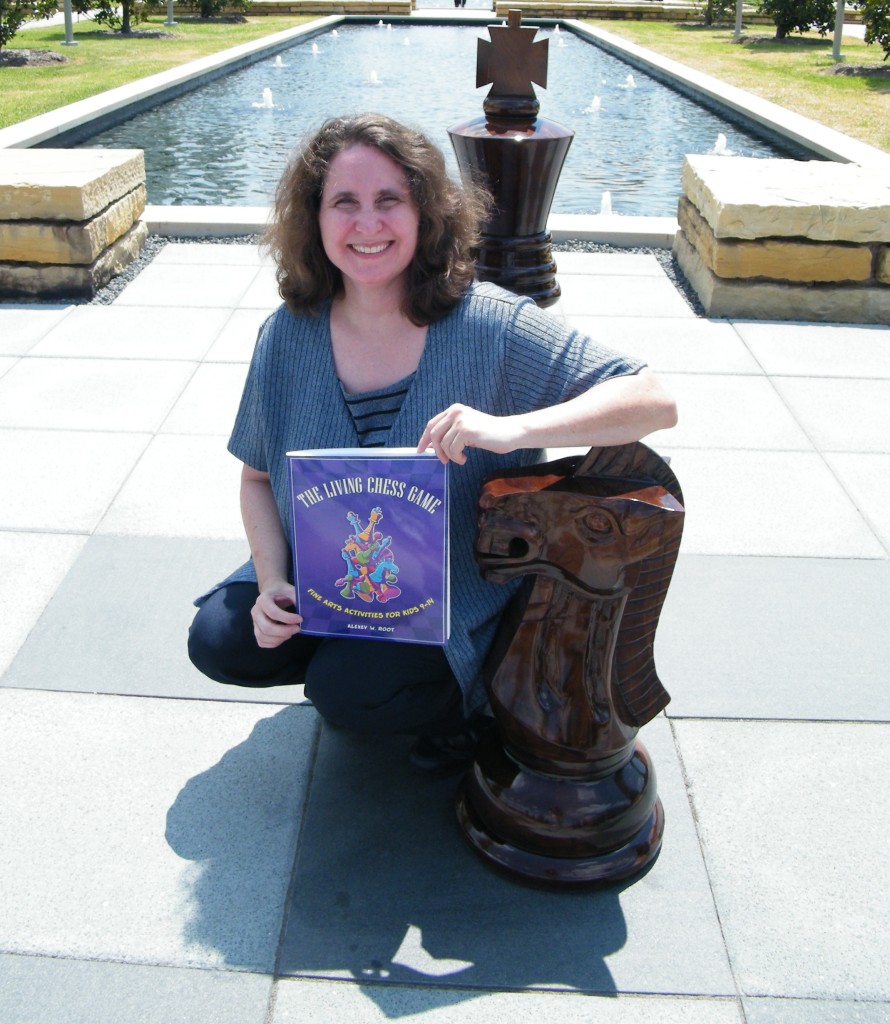
A phenomenal chess player, renowned lecturer, and prolific writer, Woman International Master Alexey Root does it all. Indeed— not only has Dr. Root won a myriad of prominent chess tournaments such as the U.S. Women’s Chess Championship, she has also taught numerous courses at the University of Texas at Dallas (and continues to do so as a Senior Lecturer) and has written numerous books about chess and education. Please click here to view the books she has written.
Tell me about the chess courses you teach.
Please link your readers to this University of Texas at Dallas web page for information about the courses (ED 4358 and ED 4359). Students from as far away as Qatar have taken these courses, which are completely online. I encourage your readers to look at the aforementioned link and to then email me at aroot@utdallas.edu for more information.
What chess books helped you develop as a player?
As a child, I loved the “movies” in the I. A. Horowitz book How to Win in the Chess Openings. Among recent books, I liked Judit Polgar Teaches Chess (Book 1), which I reviewed for Chess Life magazine (December 2012 issue). I need to get the other two books in her series!
What is one piece of advice you would give to a chess player?
My advice is to think of your opponent as essential to your improvement. “He who wrestles with us,” wrote Edmund Burke, “strengthens our nerves, and sharpens our skill. Our antagonist is our helper.” Be glad when your opponent plays good moves and forces you to play your best. Be gracious after the game for the time and effort your opponent put into playing you.
What inspired you to start writing about chess and its benefits?
I started teaching the online courses in 2001. My first version of ED 4358 became my first book, Children and Chess: A Guide for Educators. Then I had to rewrite ED 4358! More generally, I am inspired to write about chess and its benefits from my background. I am a former U.S. Women’s Chess Champion (1989) and I have a Ph.D. in education from UCLA (1999). Writing lets me share my expertise in chess and in education.
Who is the strongest opponent you’ve ever played against?
I’m not sure who was the highest-rated GM or IM that I played once or twice. But I played the most games against Grandmaster Igor Ivanov. I lost to him six times in Southern California tournaments.
In your free time, what do you like doing besides playing chess?
I swim an hour each day and compete in an annual swim meet for The University of Texas at Dallas in Corporate Challenge. Also, I wrote an article about chess and hoarding for Chess Life magazine (January 2015 issue), which has accelerated my second career as someone who helps others organize (and usually downsize) their possessions.
Why do you think children should learn chess, and, in your opinion, what are chess’ most notable benefits, whether they be educational or practical?
My first book, Children and Chess: A Guide for Educators (Libraries Unlimited, 2006), devotes one chapter to each of the following concepts that chess helps us experience: flow, competition, sacrifice, problem solving, multiple intelligences, and planning. For example, chess can help us experience flow, a term defined by Mihaly Csikszentmihalyi. Flow is like being “in the zone,” concentrating, fully engaged, etc.
Why is chess meaningful to you?
Competing at chess used to be how I achieved flow, the Mihaly Csikszentmihalyi concept I mentioned previously. During games, I also liked figuring out what move to play next. Although flow and problem solving initially attracted me, later I met many friends through chess tournaments. Much of what I do for a living now is chess-related.
We’d like to thank Alexey Root for answering our questions and for what she has done to spread and promote chess in the USA and abroad. We wish her the best of luck in her future pursuits!